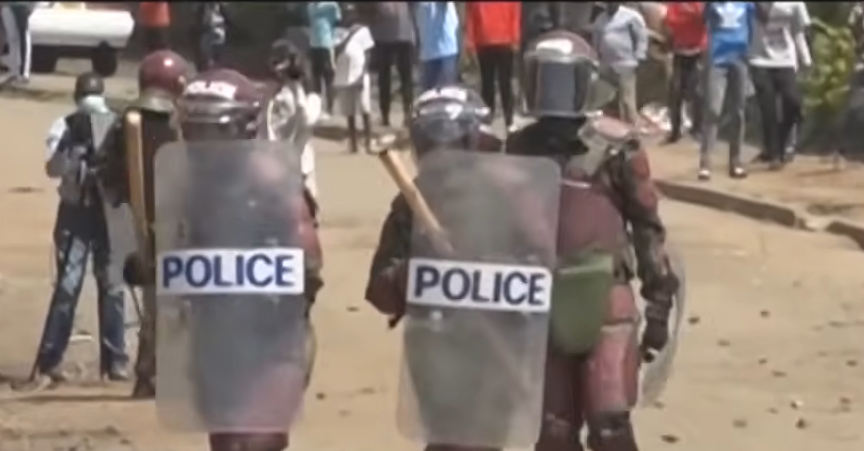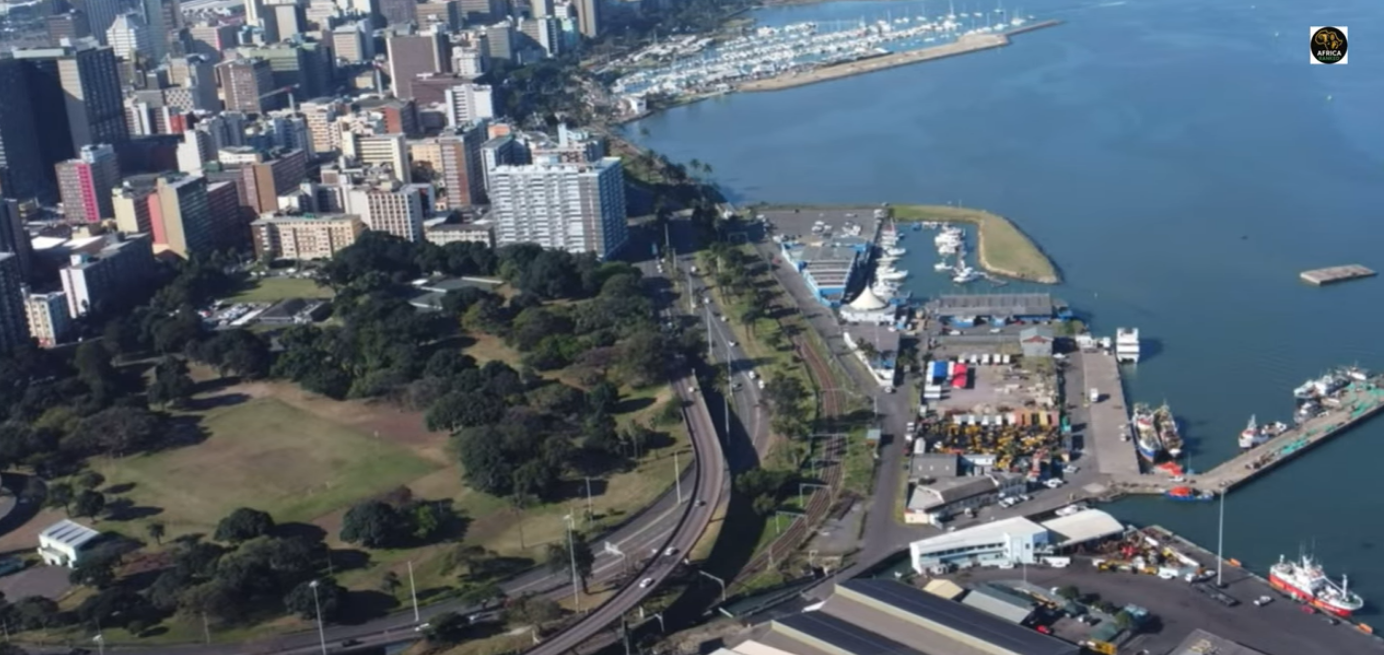By Tania Bore
Photos: YouTube Screenshots
In the aftermath of George Floyd’s brutal murder on May 25, 2020 by officer Derek Chauvin in Minneapolis, Minnesota in the U.S., the African Diaspora Forum was flooded with at least 300 people asking daily how they could relocate to Ghana. According to the Head of the African Diaspora Forum, Mr. Floyd’s death “did spur a sense of people wanting to get out of America.” Following its “Year of Return” government campaign, Ghana saw at least 1,500 African Americans immigrate to the country since 2019.
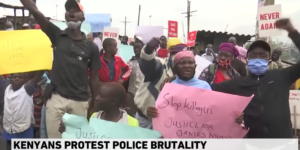
It’s no secret that there are some Black Americans who have not only expressed concern about issues they face in the U.S. like police brutality and economic challenges, but have chosen to leave the nation altogether. What about police brutality in Africa? Is the grass really greener on the other side?
In the wake of the Black Lives Matter movement that saw many protests across the U.S. in 2020 against police brutality, new research demonstrates that the number of Black people dying by the hands of the police in America actually grew larger between 2020 and 2022, and in the United States white people are half as likely as Black people to experience gun violence and death by police officers.
But how does police brutality compare across the Atlantic in African countries like Kenya and Ghana?
On April 19th 2016, Kenyan high schooler Francis Kioko was attending a garbage collection meeting with his group members when police officers showed up and made them lie down on the ground, right before they proceeded to open fire. What was their crime? Being reported by village elders for alleged “criminal activity.” That was reason enough for the police to take their lives.
A third of Kenyans have undergone police harassment or abuse. George Musamali, former police officer turned security and safety consultant, said the issue starts in police training where “recruits are brutalized in the name of being trained, so at the end of the day when they graduate, they extend the same brutality they received during training to members of the public because, there’s a belief that members of the public are enemies of the police.”
And enemies of the police are exactly what Francis’s mom, Stella Marris, and those seeking justice for his life were treated as. While seeking justice for her son, Ms. Marris was threatened by police. She was also stopped and searched by the police who she said hoped to steal important case related information from her. At times, she would even be sent clandestinely taken photos of herself in court in order to intimidate her.
A young man called John who had witnessed the murders of Francis and his group members when he climbed on top of a toilet, was also threatened by the police. This was reported to the Independent Policing Oversight Authority with requests for John’s placement in Witness Protection. After being beaten by the police and surviving, two weeks later, John was eventually killed.
The most vulnerable to police brutality in Kenya are those residing in informal settlements, specifically men between 18-35 years of age. Police officers can treat informal settlement residents as “guilty until proven innocent” without experiencing any consequences. Maurice Oniang’o’s fellowship paper shares that “most cases of violence go unreported and, when reported, very few will be investigated or result in action taken against the accused officer.”
The case of Francis Kioko was no different. Despite his and other similar cases detailed in this Missing Voices report containing witness statements, post-mortem reports, and pinpointing the guilty officers, their cases were downgraded to the “inquest” stage due to “lack of evidence.”
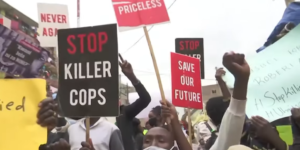
In the same way that the origins of American policing can be traced back to its slavery past—specifically slave patrols assigned to find runaway enslaved Africans and bring them back to their owners that later evolved into police units— Kenya’s policing history has roots in British colonial Kenya.
The Kenyan police was created in 1896 to suppress opposition to the building of the Kenyan railway. As Principal Policy Analyst for The Kenya Institute for Public Policy Research and Analysis Douglas Kivoi writes, the rampant police brutality exhibited in Kenya is “a legacy of British colonial rule when the role of the police was to protect the interests of the administration – not to serve the interests of the general populace.”
On the other side of the continent, policing in Ghana, unlike that of most African countries, pre-dated colonialism in the Ashanti Empire. However, it was supplanted by British colonialists who designed a police force for the “expansion and exploitation of the agricultural and mineral resources of the Gold Coast.”
Even after independence the Ghanaian police continued to be used for a negative purpose through being conduits to quash political liberties. However, when Ghana’s Fourth Republic came into power in 1993, Ghanaians began to hope that they would have a police service that adhered to ideals stated in governing legislation; these expectations have since been dashed. Ghanaian police still “abuse human rights, often with disturbing impunity, despite official pronouncements of dedication to a professional and democratic police service.”
Justice Tankebe, Director of the African Institute of Crime, Policy and Governance Research, said that the Ghanaian “police reputation is it intimidates, is violent, corrupt and that it treats civilians unfairly.”
When he heard gunshots from the field, Francis Kioko’s brother called their father. Francis’s father came just in time to find his son barely alive. He begged the police officers to not harm his child, but to no avail. Francis died that day. Similarly, the pleas of other Kenyans, Ghanians, and African Americans that police brutality be effectively dealt with remain unanswered.
In the Missing Voices report chronicling the police killings in Kenya, Kanyi Wyban writes “sunrise to sunset, one day to the next, parents, sons, daughters, students, workers, businessmen and so forth, have all fallen prey to a failing judicial system. One that is no different from a cult, to which you must adhere blindly, or feel its wrath.”
As a Kenyan born American raised Gen-Z who grew up in a family that struggled financially at different times on both continents, it is saddening to wonder inconclusively where Black people, especially those who are low income, can live in peace without fear of police brutality and other forms of discriminatory treatment.
Though I and many others still do not have an answer to this question, we know we would rather risk feeling the wrath of the judicial systems we are under by calling out the various ways they harm citizens, than go gently into that good night.
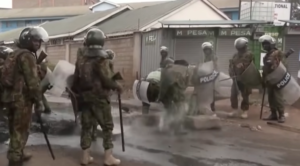
Ms. Bore who writes for Black Star News lives in Eldoret, Kenya.
